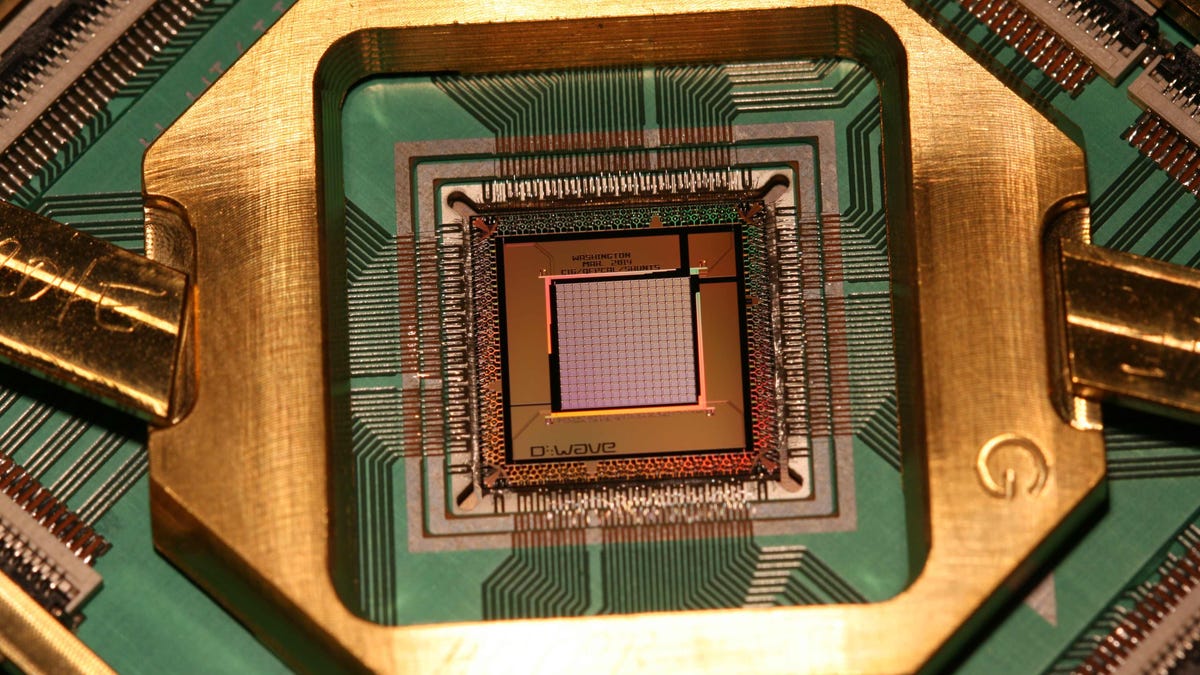US government: Help us protect computers from quantum hacking
The same government seeking to future-proof its secrets and our own digital privacy also wants to make sure it can bypass encryption.
The US government has begun asking for ideas about how to ensure quantum computers of the future won't be able to crack open secret files as easily as we crack open an egg today.
The National Institute of Standards and Technology (NIST) published a request on Wednesday for methods to thwart quantum hacking , a security threat that will become very real if quantum computing can grow beyond today's very early prototypes into something more practical.
"While in the past it was less clear that large quantum computers are a physical possibility, many scientists now believe it to be merely a significant engineering challenge," NIST said at its post-quantum cryptography project site. "Regardless of whether we can estimate the exact time of the arrival of the quantum computing era, we must begin now to prepare our information security systems to be able to resist quantum computing."
The request shows the difficult position government authorities are in because of encryption . On the one hand, governments want to be able to crack encryption for espionage and law enforcement investigations. On the other hand, the same cryptographic technology is used to protect the government's own classified information from hackers, foreign governments and accidental disclosure.
The tension isn't just an academic issue. For example, this year Apple and the FBI fought a legal battle over whether Apple should help investigators sidestep encryption on an iPhone used by a terrorist attacker. But in 2013, NIST was ensnared in an encryption controversy after reports based on leaked documents from former National Security Agency contractor Edward Snowden . The reports said the NSA had worked to weaken NIST encryption standards.
President-elect Donald Trump sided with the FBI in its encryption battle with Apple. But some of the world's top encryption experts have pointed out that you can't weaken encryption for the bad guys without weakening it for the good guys, too, and top tech companies have urged the US government not to weaken encryption.
Encryption, once a rarity, has spread widely. We all rely on it to scramble data so outsiders can't filch our credit card numbers when we buy something from a website, for example, and increasingly it's used to bring privacy to internet searches, text messaging, and file storage.
But the bizarre reality of quantum computers throws a big wrench in the works. Conventional computers store data as bits -- the smallest unit of information, either a zero or a one. But quantum computers use qubits that can be both zero and one at the same time through a physics principle called superposition.
Today's approach, called public-key encryption, protects data that's stored on a computer or sent over a network. It's based on the mathematical reality that it's really hard for today's computers to figure out which two prime numbers, when multiplied together, produce an even larger number. But using superposition and qubits, a quantum computer can test an immense amount of possibilities simultaneously to find the right pair of primes quickly.
"If large-scale quantum computers are ever built, they will be able to break many of the public-key cryptosystems currently in use. This would seriously compromise the confidentiality and integrity of digital communications on the Internet and elsewhere," NIST said. "Some engineers...predict that within the next 20 or so years sufficiently large quantum computers will be built to break essentially all public-key schemes currently in use."
Anyone with ideas on quantum-proofing encryption can submit them at NIST's post-quantum cryptography project site by November 30, 2017.
One potential contributor could be Google. Earlier this year, it announced it's added encryption technology to its Chrome browser that'll thwart quantum computer attacks.


